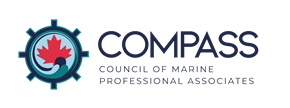
Associations
Maritime associations serve as ambassadors of the Green Marine environmental certification program. They encourage their members to join, and they promote the efforts and successes of Green Marine participants to numerous industry partners, and governmental stakeholders.
Green Marine is both an individual endeavour (with each of the participants undertaking to improve their own individual environmental performance) and a collective maritime industry initiative. The associations play a crucial role in mobilizing their members.

Advanced Biofuels Canada
Advanced Biofuels Canada is the national voice for producers, distributors, and technology developers of advanced biofuels and renewable synthetic fuels. Its members are global leaders in the commercial production of functional, scalable biofuels, with more than 24 billion litres (6.3 billion gallons) of installed annual capacity worldwide. Members include Canada’s leading advanced biofuels producers and technology innovators who are actively developing new clean liquid fuel production and distribution assets and operations in the country.
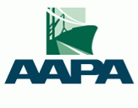
American Association of Port Authorities
Founded in 1912, AAPA today represents 140 of the leading seaport authorities in the United States, Canada, Latin America and the Caribbean and more than 300 sustaining and associate members, firms and individuals with an interest in seaports. The volume of cargo shipped by water is expected to dramatically increase by 2020 and the number of passengers traveling through seaports will continue to grow. To meet these demands, the AAPA and its members are committed to keeping seaports navigable, secure and sustainable.
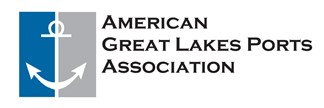
American Great Lakes Ports Association
The American Great Lakes Ports Association (AGLPA) is an organization representing the interests of the public port authorities on the U.S. side of the Great Lakes. The organization works to inform and influence public policies, primarily at the federal level, that foster maritime commerce and related employment in the Great Lakes region.

American Maritime Partnership
The American Maritime Partnership (AMP) is the broadest coalition ever assembled to represent the U.S. maritime industry. AMP’s membership includes vessel owners and operators, shipboard and shoreside workers, shipbuilders and repair yards, equipment manufacturers and vendors, dredging and marine construction contractors, maritime trade associations and national security organizations. All recognize that a strong domestic maritime industry is critical for America’s economic, national, and homeland security, and is best supported by maintaining the Jones Act as the foundation of American maritime policy.
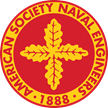
American Society of Naval Engineers (ASNE)
The American Society of Naval Engineers (ASNE) is the leading professional engineering society for engineers, scientists and allied professionals who conceive, design, develop, test, construct, outfit, operate and maintain complex naval and maritime ships, submarines and aircraft and their associated systems and subsystems. ASNE also serves the educators who train the professionals, researchers who develop related technology, and students who are preparing for the profession. Society activities provide support for the U.S. Navy; U.S. Coast Guard; U.S. Marine Corps; U.S. Merchant Marine and U.S. Army. ASNE is the seventh oldest technical society in the United States. It was founded in 1888 by a group of naval engineering pioneers, most of them officers of the U.S. Navy’s Engineering Corps, who sought a unified approach to their profession in order to make the most of new advances in technology.
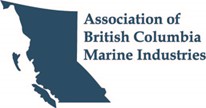
Association of British Columbia Marine Industries
The Association of British Columbia Marine Industries represents a wide variety of companies in BC’s industrial marine sector – a sector that comprises about 1000 companies. This includes shipbuilding and ship repair, industrial marine services, marine professional services, marine products, small craft marine construction and repair, and ocean science and technology.

Association of Canadian Port Authorities
The Association of Canadian Port Authorities was founded in 1958 and groups together ports and related marine interests into one national association. ACPA represents all Canadian Port Authorities, various government entities and companies doing business in the marine sector, and is the leading Association for the advocacy and advancement of the Canadian Port Industry. ACPA members contribute significantly to the local, regional and national economy of Canada, responsible for over 213,000 direct and indirect jobs and handling over $200 billion worth of goods annually.
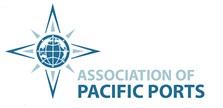
Association of Pacific Ports
As drivers of economic growth, international trade and the creation of thousands of jobs, the ports of the Pacific Ocean share a common vision: to provide an efficient, fluid and cost-effective supply chain in a safe, environmentally sustainable and economically viable manner. The Association of Pacific Ports assists its member ports in achieving this vision by facilitating the sharing of actual experience and best practices, peer-to-peer networking, as well as professional development.
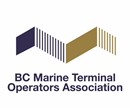
BC Marine Terminals Operators Association
The BC Marine Terminal Operators Association is the voice of marine terminals in British Columbia. It is dedicated to safe, high quality and reliable movement of goods through B.C.’s ports. Established in November 1963, the BC Marine Terminal Operators Association has been actively engaged with all stakeholders to ensure that Canada’s Pacific Gateway delivers sustainable, competitive terminal capacity to meet Canada’s growing international trade in exports and imports.

Big River Coalition
The Big River Coalition (BRC) was established in 2011 in response to a significant shift in federal funding policy. That year, the Commander of the U.S. Army Corps of Engineers’ Mississippi Valley Division announced that maintenance of the Mississippi River Ship Channel (Gulf to Baton Rouge, Louisiana) would be limited to the Operations and Maintenance (O&M) budget. Until then, the Ship Channel had often received additional resources from other Corps projects due to its national importance.
Following the 1989 grounding of the M/V Marshal Konyev near Pilottown, which effectively closed the channel, USACE Headquarters had pledged to prioritize maintenance of this vital waterway. However, the new funding approach threatened that commitment.
In response, the BRC was formed to advocate for additional funding, to protect the Harbour Maintenance Trust Fund through legislative efforts, and to represent the Mississippi River navigation industry on coastal restoration issues. As the Coalition grew and gained traction, its mission expanded to include support for deepening the Ship Channel to 50 feet, ensuring it remains a vital economic superhighway.
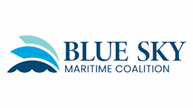
Blue Sky Maritime Coalition
Blue Sky Maritime Coalition is a not-for-profit strategic alliance committed to accelerate the transition of waterborne transportation in the United States and Canada towards net zero greenhouse gas emissions. As a partnership among industry, government, education, research, end users and other organizations representing all aspects of the maritime value chain in North America, Blue Sky Maritime Coalition is developing and executing a roadmap to achieve a commercially viable net zero emissions waterborne logistics sector. Membership in the coalition is open to all stakeholders participating towards achieving the coalition’s stated objectives.
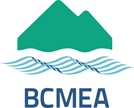
British Columbia Maritime Employers Association
The British Columbia Maritime Employers Association (BCMEA) is a province-wide, voluntary, multi-employer waterfront organization, the BCMEA represents 55 customer-members. They include ship owners, agents, and stevedores, as well as terminal operators throughout the container, cruise ship, bulk and breakbulk sectors.
The BCMEA provides its customer-members with support and services related to labour relations, dispatch services, training and recruitment, payroll and IT functions, safety consulting, government relations, disability claims management and recover-at-work programs, as well as data analytics.
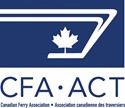
Canadian Ferry Association
The Canadian Ferry Association is the national voice of ferries in Canada. Our members operate with the highest professional and operational standards and promote the safe operation of ferry services in Canada. CFOA joins eleven other Canadian and American marine industry associations as non-voting members of Green Marine Management Corporation.

Canadian Marine Industries and Shipbuilding Association
The Canadian Marine Industries and Shipbuilding Association (CMISA) is the national body giving a strong voice to these suppliers, service providers and builders since its creation in 2018. CMISA’s wide-ranging support includes a forum that facilitates the successful collaboration by members across the country. The association is also working to make a broad range of information resources available to its members and the public.

Canadian Marine Pilots Association
The Canadian Marine Pilots’ Association was founded in 1966 to foster public awareness of the role of marine pilots in protecting public safety and the environment, and to work with other marine stakeholders to ensure a vibrant and healthy marine sector. The CMPA represents virtually all of Canada’s 400 pilots. As a national body, the CMPA is concerned with all marine issues as they affect pilots – whether expressed through legislation, regulation, policy reviews or industry consultations.
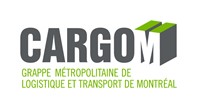
CargoM
CargoM brings together all of Greater Montreal’s freight transport and logistics stakeholders whose activities promote the city as an industry hub around common goals and concerted actions to increase its cohesion, competitiveness, growth and reach.
Launched in 2012 and as part of Greater Montreal’s economic development strategy, CargoM, the Montreal Metropolitan Logistics and Transportation Cluster, is one of 10 metropolitan clusters established since 2006.
Within the next few years, CargoM aspires to establish Greater Montreal as a widely recognized intermodal hub, sought after for its operational and environmental performance, as well as its contribution to the competitiveness of its business partners and to the economic development of Greater Montreal and the Province of Quebec.

Chamber of Marine Commerce
The Chamber of Marine Commerce is a bi-national association that represents more than 130 marine industry stakeholders including major Canadian and American shippers, ports, terminals and marine service providers, as well as domestic and international ship owners. The Chamber has merged with the Canadian Shipowners Association, combining resources to advocate for an efficient regulatory climate that promotes a strong and competitive marine industry for the benefit of all industry stakeholders throughout the bi-national Great Lakes and St. Lawrence region and along the eastern seaboard and northern coasts. Based in Ottawa, Canada, the merged entity will continue to be called the Chamber of Marine Commerce.

Chamber of Shipping of America
Based in Washington DC, the Chamber of Shipping of America is a nonprofit US national ship owners’ trade association with 34 member companies. It focuses on compliance programs for large oceangoing ships for both existing and future regulatory initiatives. The issues are worked at the international level (International Maritime Organization) as well as US federal and state levels, including the coast guard (USCG), Environmental Protection Agency (EPA), and National Oceanic and Atmospheric Administration (NOAA).

Chamber of Shipping of British Columbia
The Chamber of Shipping of British Columbia represents vessel owners, operators and shipping agencies engaged in international trade through Canada’s Pacific gateway. The association fosters the development of collaborative solutions and promotes the development of effective and responsive legislation that continues to support a robust and sound shipping industry.
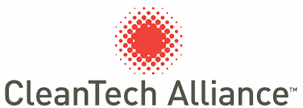
CleanTech Alliance
CleanTech Alliance represents more than 1,000 member organizations spanning 17 U.S. states and four Canadian provinces. Its large, varied membership from all facets of the clean technology industry empowers the organization to champion the cleantech economy’s new products, services and related new employment. Cleantech Alliance facilitates the generation and expansion of cleantech companies and job opportunities through a variety of educational programs, research, products and services.

Council of Marine Carriers
The mandate of the Council of Marine Carrier is to further the interests and to conserve the rights of members of the Council and to promote their general welfare. The Council’s role is to formulate and advocate policies, legislation and regulations that are beneficial to the tug and barge industry. The Council of Marine Carriers represents the membership in all matters before the appropriate governmental and industrial agencies.

Cruise the Saint Lawrence
Founded in 2000, Cruise the Saint Lawrence brings together as an association nine ports of call along the Saint Lawrence River: Montreal, Trois-Rivières, Quebec City, Saguenay, Baie-Comeau, Sept-Îles, Havre-Saint-Pierre, Gaspé and the Magdalen Islands. The association has as its mission is to further the growth of the cruise market within Quebec in sustainable ways by offering development and marketing services to its members. Cruise the Saint Lawrence is supported by Tourisme Québec, l’Alliance de l’industrie touristique du Québec, and Canada Economic Development as its partners.

econext
econext is a not-for-profit association with a mission to accelerate clean growth in Newfoundland and Labrador through a focus in three areas of activity: innovation, workforce, and net zero.
econext has been working for over 30 years on behalf of its members across many sectors to support environmentally sustainable economic development. With a membership of over 150 businesses, research institutions, governments, and organizations – econext is Newfoundland and Labrador’s leading voice on the green economy.
econext’s vision is for Newfoundland and Labrador to be recognized as a significant contributor to global decarbonization while achieving net zero domestically by the year 2050.
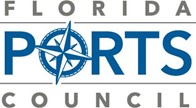
Florida Ports Council
The Florida Ports Council is a non-profit corporation that serves as the professional association for Florida’s fifteen public seaports and their management. The council is governed by a board of directors comprised of the fifteen port directors. Its support staff is based in Tallahassee. The council provides advocacy, leadership and information on seaport-related issues before the legislative and executive branches of the state and federal government.
Florida’s network of seaports is one of the state’s greatest economic assets, positively affecting every region and every resident. Whether moving upwards of a hundred million tonnes of cargo annually or millions of cruise passengers, Florida’s seaports generate and support a vast array of commerce. The Florida Ports Council believes a strong, strategic public/private partnership between Florida’s ports and the state and local levels of government will enable these diverse seaports to continue their significant economic contributions to every region of the state.

FuturePorts
FuturePorts is an advocacy organization whose members represent a broad range of goods movement industry businesses operating throughout the Southern California region. Members range from small to large companies in the goods movement supply chain sector, from engineering and construction companies and their suppliers, to labor, and transportation providers. Members are united in their support for sustainable growth of the Southern California Ports.

Independent Marine Ports Association of Atlantic Canada (IMPAC)
The Independent Marine Ports Association of Atlantic Canada (IMPAC) was established in 2005 to increase awareness about the importance of independent ports and their interconnectedness to the Atlantic region’s transportation network and economy. Each of the independent marine ports has an integral role in the economic health of its immediate communities as well as the broader economic fabric of the Atlantic Provinces.
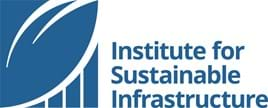
Institute for Sustainable Infrastructure
The Institute for Sustainable Infrastructure (ISI) is a non-profit 501(c)(3) organization based in Washington, D.C. Its mission is to transform the way civil infrastructure is planned, designed, constructed, and operated in order to achieve a sustainable world. Founded in 2010 by the American Public Works Association (APWA), the American Society of Civil Engineers (ASCE), and the American Council of Engineering Companies (ACEC), ISI has partnered with the Zofnass Program for Sustainable Infrastructure at Harvard University to develop the Envision sustainable infrastructure rating system, which ISI administers throughout the United States, Canada and abroad.

Interferry
Interferry is a trade association representing the worldwide ferry industry. With more than 260 members from 40 countries, the association represents the ferry industry at the International Maritime Organization, the European Union and other jurisdictions worldwide. Interferry hosts an annual global ferry conference at strategic locations. It also promotes membership networking and the sharing of best practices.
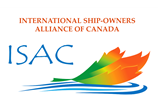
International Ship-Owners Alliance of Canada
The International Ship-Owners Alliance of Canada mission is to promote the interests of shipowners/operators with a presence in Canada. ISAC’s role is to monitor relevant marine policy and legislative developments and represent its members’ interests before the federal and provincial governments of Canada as well as other national and international organizations and regulatory authorities.

International Shipsuppliers and Services Association
The International Shipsuppliers and Services Association (ISSA) represents nearly 2,000 ship suppliers throughout the world. Established in 1955, ISSA encompasses 40 national associations of ship suppliers as full ISSA members, as well as associate members in 51 countries where no national organization exists.
Recognizing that ship supplying is very much a relationship-based enterprise, ISSA aims to provide a better understanding between suppliers and buyers through consultation and communication.
Members undergo a rigorous vetting process before gaining admittance to assure their reliable and quality-driven services. ISSA has also developed a set of conditions that form the base of any supply contract to ensure fair trading and best practices.
The ISSA Secretariat is certified to ISO 9001:2015 quality standard.
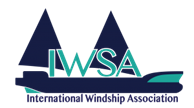
International Windship Association
The International Windship Association (IWSA) is a growing, member driven association that is encouraging, advising and advocating for the use of wind propulsion technologies in the shipping industry.
IWSA’s objective is to facilitate and promote the technology, applications and general concept of wind propulsion for the global commercial shipping industry and bring together all parties interested in catalysing the development and uptake of these technology solutions. The IWSA will increasingly play a key role in acting on behalf of our members and supporters within this sector in order to shape industry, regulators’ and international bodies’ perception of the concept of wind propulsion.
Membership of IWSA is available to companies and organisations involved in the marine wind propulsion sector along with associate members and supporters that share our vision coming on board from the wider industry, academia, non-profit sector etc.
With the help of our members, supporters within the industry, academia and other stakeholders, IWSA is sending out a clear message: wind propulsion is a serious and increasingly proven option, financially a win-win situation and we are here to work with an industry ready for change.
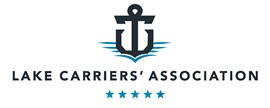
Lake Carriers Association
Since 1880, the Lake Carriers Association (LCA) has represented the U.S.-flag Great Lakes fleet, which today can move more than 90 million tons of cargos annually that are the foundation of American industry, infrastructure, and energy: iron ore, stone, coal, cement, and other dry bulk materials such as grain, salt, and sand. LCA’s mission is to promote the common interests of U.S.-flag vessel operators on the Great Lakes by creating change and recognition through legislative and regulatory matters. The association aims to educate legislators, regulators and the general public on the role of Great Lakes shipping in the American economy and maximize the efficiencies of waterborne commerce in a manner that respects our environment.
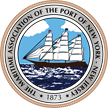
Maritime Association of the Port of New York and New Jersey
The Maritime Association of the Port of New York and New Jersey serves the port region’s commercial maritime industry by monitoring and sharing data regarding vessel activity to its membership and the public, as well as advocating for the port’s commercial maritime interests at all government levels. It also works to promote navigational safety, the security of maritime assets, the competitiveness of port services, and the marine environment’s sustainability.

Maritime Blue
Maritime Blue is a not-for-profit strategic alliance formed to accelerate innovation and sustainability in support of an inclusive blue economy. With a mission to implement Washington State’s Strategy for the Blue Economy delivered by Governor Jay Inslee’s Maritime Innovation Advisory Council, the alliance is a partnership among industry, the public sector, research and training institutions, as well as community organizations. Washington Maritime Blue works to create a thriving world-class equitable and sustainable maritime and ocean industry through knowledge sharing, joint innovation, entrepreneurship, commercialization, business and workforce development.

Maritime Exchange for the Delaware River and Bay
The Maritime Exchange for the Delaware River and Bay was formed in 1872 for the purpose of promoting waterborne commerce in the tristate Delaware River port region. The Exchange represents private and public port businesses, non-profits, government agencies, and first responders by advocating for programs designed to sustain an economically healthy, safe, secure and environmentally sound maritime transportation system. The Maritime Exchange also plays an operating role at the port with the responsibilities of collecting and distributing ship and cargo movement information to port stakeholders on schedule or on demand.

Master Mariners of Canada
Master Mariners of Canada engage their members and maritime community to continuously improve their knowledge and expertise as maritime professionals while mentoring promising mariners as well all advocating for marine safety and cooperation. The Master Mariners of Canada's vision is recognition as a leading Canadian marine organization, representing the interests of shipmasters and senior deck officers, by providing education, advocacy and advice in an independent and unbiased manner.

Michigan Advanced Biofuels Coalition
By promoting the production and use of renewable advanced biofuels, the Michigan Advanced Biofuels Coalition (MiABC) supports energy security and better air quality in the State of Michigan.
With its technical expertise, key networking, and well as communications and promotional efforts, MiABC builds awareness as to how advanced biofuels, such as biodiesel, renewable diesel, and sustainable aviation fuel, significantly reduce air emissions from road, marine and aviation transportation to improve the environment.
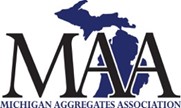
Michigan Aggregates Association
The Michigan Aggregates Association promotes best practices for safe and efficient aggregate production, responsible environmental stewardship and reasonable material specifications for our members. Through community involvement, the association educates the public and creates a sustainable industry for future generations by providing materials used by Michigan citizens in their daily lives.

NAMEPA
NAMEPA is an independent, marine industry-led association that engages maritime businesses, government and the public to “Save our Seas” by promoting sound environmental practices. NAMEPA operates as a non-governmental organization committed to preserving the marine environment by educating seafarers, port communities and students about the need and strategies for protecting this important global resource
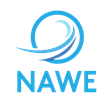
National Association of Waterfront Employers (NAWE)
The National Association of Waterfront Employers (NAWE) is the voice of the U.S. marine terminal operator (MTO) and stevedoring industry in Washington, DC. NAWE promotes marine cargo efficiency, security and health, a clean environment, international trade, and economic growth through advocacy, education, and industry cooperation.

North Atlantic Ports Association Inc.
The North Atlantic Ports Association Inc. was founded in New York City by a group of port and terminal operators meeting at the Biltmore Hotel on March 4, 1949. The association was created to discuss common issues among seaports and that continues to be its role. One of the oldest and most active of associations of this kind, it has approximately 100 members. They are all connected to seaports and ocean commerce in some way and include: terminal operators, stevedores, port authorities, governmental agencies, non-profits, consultants, academics, maritime lawyers, ships’ agents – all located between Virginia and the Canadian Maritimes. Our member ports are in Boston, New York, Philadelphia, Wilmington, Baltimore, Norfolk and many other points between. The members are interested in expanding trade among nations and in helping their local communities to prosper through increased ocean commerce. By joining forces under the umbrella of the North Atlantic Ports Association, the members are better able to fulfil their responsibilities of efficiency, fairness, safety, stewardship, regulatory compliance, ethics and preparedness for the future.
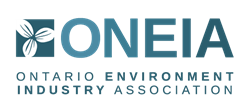
Ontario Environment Industry Association
Established in 1991, ONEIA is the business association representing the interests of the environment industry in Ontario. Its network of thousands of contacts includes key people at environmental technology, product and service companies, law, investment and insurance firms, institutes, universities and governments. Through their innovation and experience in Ontario and around the world, Ontario’s environment industry provides market-driven solutions for society’s most pressing environmental problems.
While the industry is diverse, ONEIA provides a place where a variety of companies, entrepreneurs and other organizations in the environment field can come together to work on common concerns, share information and explore business opportunities. Through ONEIA, they can work towards a society that understands and values the contribution that market-based solutions make to environmental problems.

Pacific Merchant Shipping Association (PMSA)
Pacific Merchant Shipping Association (PMSA) is an independent, not-for-profit shipping association focusing on international trade issues. Its members are engaged in trade primarily between Asia and the U.S. West Coast, as well as with Europe, the Mediterranean and South America. With offices in Oakland, Long Beach, and Seattle, PMSA represents marine terminal owners and operators, and U.S. and foreign vessels operating worldwide. On behalf of its members, PMSA is actively involved in community affairs. It also participates in legislative and regulatory processes in California and Washington State. PMSA provides its members with valuable information services, such as regular updates on shipping industry developments. Additionally, it serves as a clearinghouse for environmental best practices within the industry.

Pacific Northwest Waterways Association (PNWA)
Pacific Northwest Waterways Association (PNWA) is a non-profit trade association that advocates federal policies and funding in support of regional economic and environmental sustainability. PNWA represents more than 150 public ports and enterprises involved in navigation, transportation, trade, tourism, agriculture, forest products, energy, as well as local government interests, in the states of Washington, Oregon and Idaho.
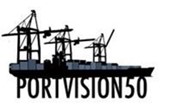
PortVision50
PortVision50 is dedicated to empowering the maritime industry in order to ensure seamless on boarding of the International Maritime Organization’s (IMO) regulations aimed at reducing GHG emissions across the shipping industry.
The Mission of PortVision50 is to work with North American Ports and other maritime stakeholders to understand the mix of technical, operational, and innovative solutions applicable to ships that are required to achieve the goals of the International Maritime Organization (IMO) GHG Strategy. PortVision50 will engage in a dialog with the necessary stakeholders to ensure that Port infrastructure projects will be aligned with the global projects supporting IMO 2030 and 2050.
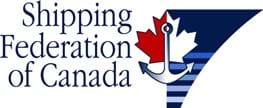
Shipping Federation of Canada
The Shipping Federation of Canada, incorporated by an Act of Parliament in 1903, is the association that represents and promotes the interests of the owners, operators and agents of ships involved in Canada’s world trade. The Federation’s member companies are involved in all sectors of the shipping industry, including dry bulk, liquid bulk, container and cruise. The Federation’s key activities are to provide advocacy for the ocean shipping industry; offer operational support to its membership; disseminate information to members, governments and the general public; and provide training to members and other industry stakeholders.

Smart Freight Centre
Smart Freight Centre (SFC) is a globally active non-profit organization for climate action in the freight sector. Their goal is to mobilize the global logistics ecosystem, in particular their members and partners, in tracking and reducing its greenhouse gas emissions. SFC accelerates the reduction of logistics emissions to achieve a zero-emission global logistics sector by 2050 or earlier, consistent with 1.5° pathways.

Society of Naval Architects and Marine Engineers (SNAME)
SNAME is an internationally recognized non-profit, professional society of individual members serving the maritime and offshore industries and their suppliers. For many, SNAME has been essential to career development and success in the industry. With more than 6,000 members around the world in 85 countries, SNAME is THE International Community for Maritime and Ocean Professionals!
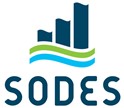
St. Lawrence Economic Development Council
Since 1985, SODES has been a key player in promoting the St. Lawrence region’s economic activity and growth. It advocates on behalf of the marine community by representing its interests and projects in all forums and before all bodies concerned with the St. Lawrence region’s economic future. By working with its numerous members from various backgrounds, SODES strives to further the sustainable development of the St. Lawrence.
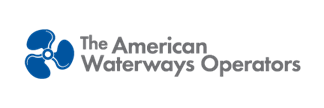
The American Waterways Operators (AWO)
The American Waterways Operators (AWO) is the national advocate for the U.S. tugboat, towboat and barge industry, which provides the United States with safe, environmentally friendly, and economical freight transportation. More than 300 AWO members operate within U.S. waters. Their 40,000-vessel domestic maritime fleet moves 760 million tons of vital commodities safely, which provides family-wage jobs for tens of thousands of Americans while reducing highway congestion, air emissions and water pollution. AWO promotes the industry’s long-term economic soundness as it also works to enhance its ability to provide safe, efficient, and environmentally responsible transportation.

United States Great Lakes Shipping Association
The USGLSA was established in 1956 to support the work of U.S. vessel agents. Originally based in Chicago, the Association now handles vessel agent issues throughout the entire U.S. Great Lakes – from Duluth, MN to the U.S. Seaway locks in Massena, NY. The Association stays current on regulatory, legislative, and operations policy changes as they may impact commercial vessel operations in the Great Lakes. The Association is active in monitoring programs, regulations and issues.

Vancouver Maritime Centre for Climate
The Vancouver Maritime Centre for Climate (VMCC) is a grassroots industry-led initiative dedicated to accelerating the transition of shipping in British Columbia to a zero-emissions industry. VMCC recognizes that maritime operators face huge current and approaching regulatory hurdles in terms of emissions reduction and ultimately elimination with no clear path to meet such targets. The organization is working to bring together key players to share information and experience to facilitate the quicker mobilization and implementation of green technologies. The goal is to help ship owners and supporting land-based infrastructure to achieve zero-emission operations faster. VMCC’s practical, results-driven approach includes helping to commercialize products offered by local technology and service providers by giving them access to a large member platform and discussion forums.
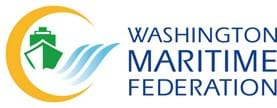
Washington Maritime Federation
The Washington Maritime Federation is comprised of maritime, economic development and business organizations that have come together to support the maritime industry. By bringing together these representatives and supporters of the many diverse segments of the maritime industry, and the greater business community at large, the Washington Maritime Federation will build consensus, provide a unified voice for the industry and join together to drive change in matters of common interest.

Whatcom Working Waterfront Coalition
Based in Whatcom County in Washington State, the Whatcom Working Waterfront Coalition is a nonprofit organization classified under section 501c-6 that advocates and lobbies for the marine trades and supports developments related to the maritime economy state- and region-wide.
The coalition also offers Health Trust, a pooled-insurance-plan for any qualifying maritime organization or company in the State of Washington.
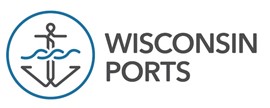
Wisconsin Ports
Wisconsin Ports serves as the public voice, organizational advocate and go-to resource for the importance of Wisconsin’s port industry. Surrounded by Lake Michigan, Lake Superior and the Mississippi River, the State of Wisconsin is essential to maritime transportation in the United States. Wisconsin’s ports contribute to the state’s economy and the wellbeing of its waterfront communities. Wisconsin Ports’ mission is to promote and sustainably enhance waterborne transportation within the state’s 14 port cities as well as Wisconsin’s overall maritime economy.

Worldwide Network of Port Cities (AIVP)
Today with nearly 200 members representing more than 2,000 sustainable development actors in port cities throughout nearly 50 countries on five continents, the AIVP continues to advance operational and strategic thinking on the modalities of the relationship between a city and a port, and between a port and a city. AIVP supports its members in the implementation of new strategies to enable them to better face announced changes that affect the economic, social and environmental development of the port city: urban-port integration, global reorganization of economic channels, the challenge of societal integration, climate change, energy transition, dynamics of the cruise market, etc.
WHY BECOME AN ASSOCIATION MEMBER?
By becoming an association member, you will benefit from a number of advantages:

FREE MEMBERSHIP
No membership fees

opportunity to participate
Possibility of taking part in various Green Marine committees. Chance to participate at the Annual General Meeting as a non-voting member

DISPLAY YOUR COMMITMENT
Use of the Green Marine corporate logo to demonstrate your support for the maritime industry's environmental initiative.

INCREASED VISIBILITY
Display of your association profile on the Green Marine website. Announcement of your membership on the website, social media and in the Green Marine newsletter distributed to over 4500 subscribers.

PREFERENTIAL RATES
Preferential rates at Green Marine’s annual GreenTech conference, as well as for the purchase of advertising space in Green Marine’s online Magazine.

Become an association member of Green Marine
Associations agree to serve as ambassadors for the Green Marine environmental certification program.

A VAST NETWORK
Green Marine’s membership – participants, supporters, associations and partners – is committed to continually reducing the maritime industry’s environmental footprint through a process of continual improvement, to building strong relationships with stakeholders, and to publicizing the maritime transportation’s environmental activities and advantages.
